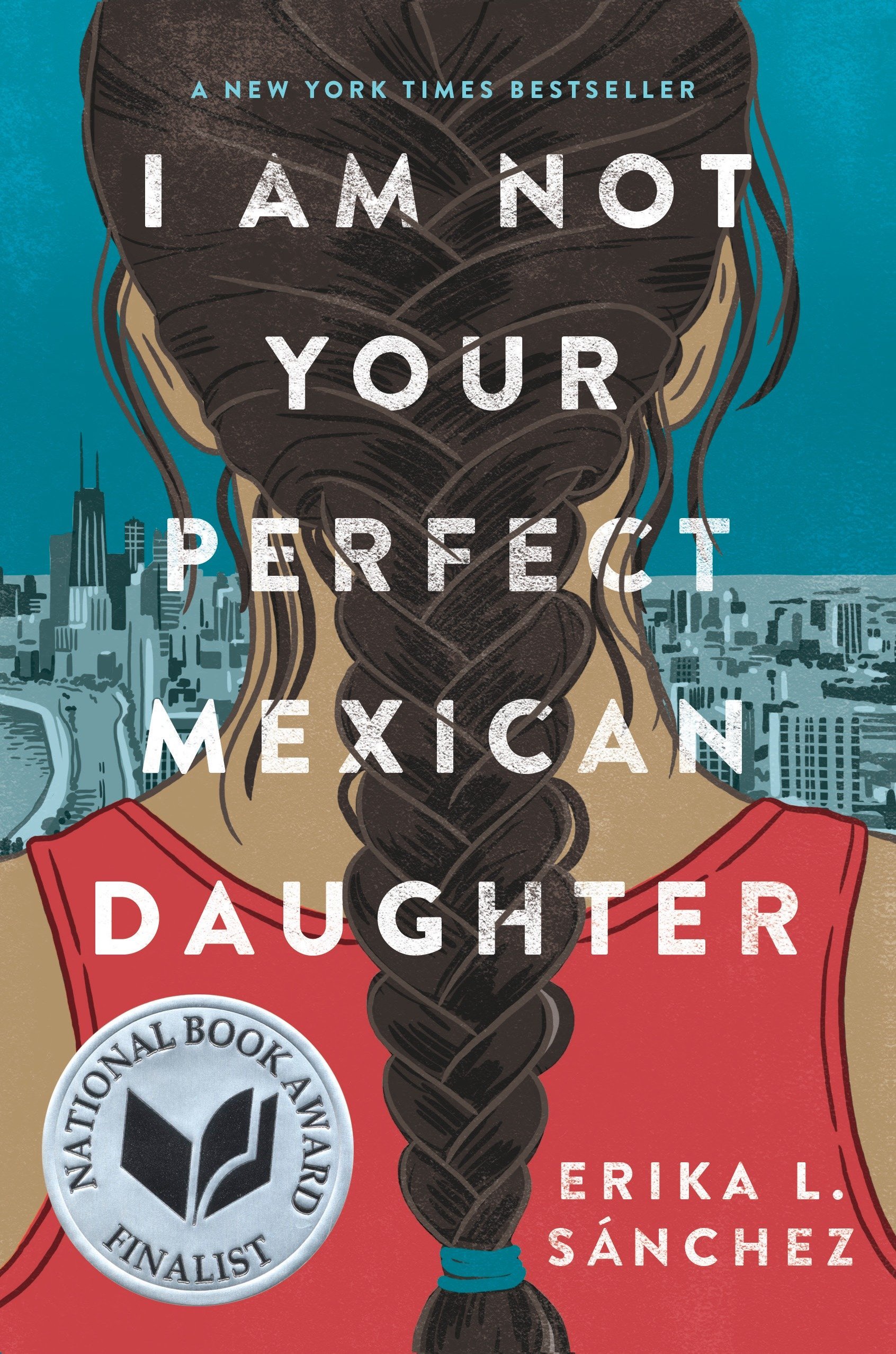

I might not be the best person to review this book. I watched a YouTube video from the Chicago Humanities Festival in which the author highlighted that she wrote the book for brown and black girls who are truly underrepresented in literature. I am neither brown nor black, and I am not a woman. I am a cisgender heterosexual male.
There is a little bit of Spanish in this book, which my C minus in high school Spanish did not equip me for. In fact, I didn’t even know there was a Mexican and Mexican-American community in Chicago until I visited the Chicago Heritage Museum over winter break and saw an exhibit showcasing this community. (I mention both groups because I feel it is important to understand that as a country, we do not recognize that to be American is more than just being from a northern European heritage.)
In fact, I came across this book at The Dail, a used book store in Chicago across the street from Millennium Park on Michigan Avenue. I had just learned the hard way that cold weather drains your cell phone battery fast. The owner of the bookstore allowed me to charge my phone there.
When browsing books, I have a habit of reading the first sentence of the books I pick up. The first sentence from Ms. Sanchez’s book was about a teenage girl perplexed by the smirk on the corpse of her dead sister lying in her casket. It got my attention and I picked up the book.
This is yet another young adult novel for me. These things are incredibly easy to read and I learned that from reading John Green. I read the last 100 pages of this book in less than 24 hours, which is unheard of for me. The book is 340 pages and it goes by fast.
All that being said, the story of Julia Reyes is a story that transcends ethnic backgrounds and gender. Julia is poor and her parents are undocumented immigrants from Mexico. Her sister, Olga, has just died. She was hit by a car while looking at her phone. However, there is a lot more going on than that.
One criticism might be that there is too much going on, but such is life. But unlike the characters in an Italian movie, where everyone is talking over each other in the kitchen, no one in Julia’s family really communicates with one another, and that’s the problem. Children who become schizophrenic typically have several background characteristics in common, such as a passive or removed father and an overbearing mother.
This is the situation in Julia’s household. Julia is drowning emotionally. The death of her sister has left her with more questions about who her sister actually was. The loss of her sister is a tipping point for Julia. She needs to move forward but doesn’t know how.
Julia is isolated because of her poor social skills. Her family cannot understand why anyone in their family would want more than to be swaddled in their ethnic enclave of Chicago. Sometimes this makes it hard to read. There is a mix of self-sabotaging behavior and emotional violence within the family that comes to the surface any time Julia doesn’t fit their narrow vision of the world. At those times, they take her soul and go in for the kill. It’s exhausting.
Alas, like most coming of age stories, Julia is resilient and you start to get the sense that she is going to be OK. She has a few good relationships to help her along the way. Her best friend is a remarkably stable force in her life, despite the occasional petty dramas between them. Her English teacher advocates for her and wants to see her succeed. He gives her the necessary tools to navigate the world beyond her friends and family. There are people outside her family that get it and truly care for Julia.
Julia wants to go to college in New York and to become a writer. She wants the same shot at success that every American should have. The biggest obstacle to achieving this goal is her family. In their eyes, the next step for Julia’s generation is to move from a low-paid manual labor job to a low-paid office job. Julia feels that on top of that and being brown, not a lot is expected of her. Moreover, by the very act of trying to move beyond these low expectations, she is made to feel as though she is committing a crime.
I love this line from the penultimate page of the book: “What a waste their journey would be if I just settled for a mediocre life.” Not everyone has to struggle this hard, but for anyone who has struggled, you will relate in some way.
